Cowboy Dressage: Adding Physical and Emotional Resiliency to Your Mental Game
 MM Training and Consulting |
MM Training and Consulting |  communication ~
communication ~  connection ~
connection ~  cowboy dressage ~
cowboy dressage ~  growth ~
growth ~  hhorsemanship ~
hhorsemanship ~  horse care ~
horse care ~  horse show ~
horse show ~  personal growth ~
personal growth ~  principles ~
principles ~  relationships
relationships Hello fellow Cowboy Dressage enthusiasts! The Gathering and Finals is getting closer and closer! We are so excited for this Gathering. For us, it is a chance to meet again with friends from all over and celebrate this discipline that we love! Thanks for this opportunity to connect again before we meet in person.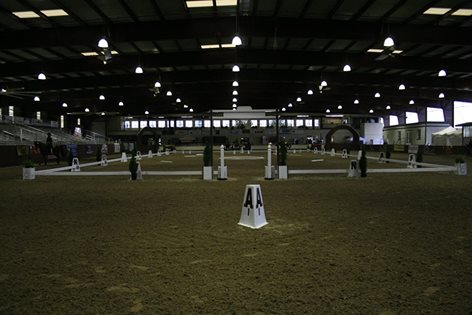
This is the second part of a two-part blog. In Part 1, our conversation centered on the mental aspect of our preparation for competition. In this blog we will focus on the physical and emotional components.
In each section, there are coaching and competing tips and real life examples from Marcia Moore Harrison and her mom, Betty Nagle, both of whom are competing at the Finals. Marcia will be competing in Top Hand, performing two freestyle routines on two different horses, and riding a minimum of 6 tests. Betty, at the age of 80, is competing for the 60 and Over High Point. 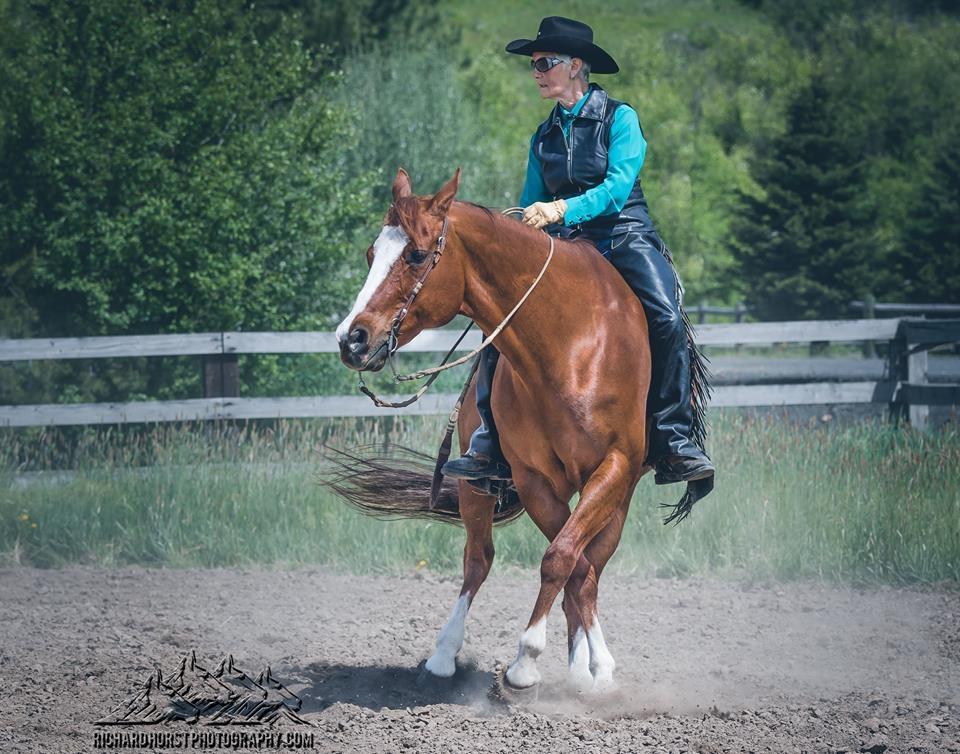
In order to perform at our best we must access pleasant and positive emotions; enjoyment, challenge, adventure and opportunity. The capacity to manage emotions skillfully depends on creating a balance between exercising them regularly and intermittently seeking recovery. We run down our emotional energy when we are constantly spending it without recovery. In terms of energy, negative emotions are costly and inefficient. Chronic negative emotions have been correlated with a broad range of disorders and diseases and certainly negatively affect our performance.
Emotionally resilient people rebound from disappointments, mistakes and missed opportunities and get right back in the game. They have hardiness for enduring the downs of a situation. Maintaining positive emotions during adversity promotes flexibility in thinking and problem solving. Emotionally resilient people remain optimistic in the face of adversity and quickly change when necessary. They resolve to make things better and are experts at figuring out ways to do more with fewer resources. Positive emotions help an individual recover from stressful experiences and encounters and increase personal well-being.
Studies show that there are several factors that develop and sustain a person’s emotional resilience:
1. The ability to make realistic plans and being capable of taking the steps necessary to follow through with them
2. A positive self-concept and confidence in one’s strengths and abilities
3. Communication and problem-solving skills
4. The ability to manage strong impulses and feelings
Let’s talk about each of these factors in detail.
Make realistic plans and follow through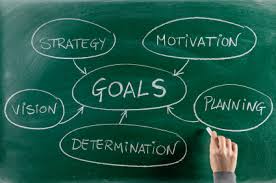
You have probably heard all the little tricks and tips for setting goals. We use and recommend many of them and they work. But the real deal when it comes to performance lies in planning for execution. If you are not making a plan that you can execute, why plan? Gear your plan for attainment, realization, and accomplishment. Be disciplined and logical in your approach. Set a few clear priorities and resist distractions. Develop daily habits that support your priorities. Periodically evaluate your progress to see if you are making headway. Share your plan with your team so they can support and encourage you. Make one of your team members your accountability partner and report to them on your progress regularly. When you have obstacles, and you will, address them right away. Emotionally tough people follow through on their plans and goals. Jenni Grimmett, in her blog post titled, Cowboy Dressage Arena Exercises said, “I am 100% goal oriented. Without a concrete goal and benchmark, I am adrift in my horsemanship. I know this isn’t true for everybody but thank goodness for the competition side of Cowboy Dressage. If I had to just get good at 10 m bend for the sake of being good at 10 m bend without somebody somewhere saying just how good I am at 10 m bend I don’t know if I would ever get as good at it as I can. When there is no finish line, good enough becomes good enough.”
Tips for competitors from Marcia Moore Harrison:
I’m a person that pushes the line on a realistic goal. I know this about myself, so I never travel alone to shows or in life. I have team members that know me well and they have the freedom to tell me the truth and have a huge influence on my chosen goals. When plans are made, it’s a team effort. When we execute those plans everyone has a role.
When all is done and we are on our way home from finals, my meaning of success will be:
Did my team and I get our emotional tanks filled from this experience?
Did I stay within my guiding principles with my horses, my team and the Cowboy Dressage family?
Application:
Have you chosen your team?
Have you been honest about your weaknesses so they can be helpful and supportive where need it most?
Sometimes our goal is just to get to the show, but have you and your team planned for execution? Does everyone know his or her roles?
What is you and your teams meaning of success? What is your win?
Positive self-concept and confidence in one’s strengths and abilities
A positive self-concept and confidence go hand-in-hand. Having positive self-talk is one way to develop a positive self-concept. Talk to yourself in the same way you would talk to someone you love. You wouldn’t berate that person for mistakes, and you wouldn’t tell them how dumb they are. When you talk to yourself, talk about your strengths and your abilities. Take control of your thoughts and make them work for you. As Joyce Meyers says, we need to think about what we are thinking about. Think about how to execute your plans and how to solve the problems that may come up. Think about ways to help your team and yourself. Think about the words that you will say before you say them. There are all sorts of things that you can control, so don’t waste time and energy on thoughts about things you can’t control. Put your thoughts to work for you!
Tips for competitors from Marcia Moore Harrison:
I like to be around positive, uplifting, can-do people. I try to surround myself with these types of people and I strive to be one, myself.
One way my team and I keep positive and focused during competition is we don’t listen to the radio or watch any T.V. This really helps calm my brain, as it is too over-active anyway.
Our team carefully decides what we want to put into our brains. For us, we have a routine of listening to Christian music in the mornings when we are getting ready. When we consistently put good things into our brain, sooner or later, those words become our self-talk script. I love what Dale Rumens-Partee says, “I hear my mentor’s words in my head when I ride.” Her mentor’s words have now become her words that she continually says to herself. This is very powerful!
Application:
Take the time to think about what you are thinking about. How are you speaking to yourself? Is it kind and uplifting?
What are you choosing to put into your brain while you are at the Finals?
What words or phrases do you want to remember to use before and during your competition?
Communication and problem-solving skills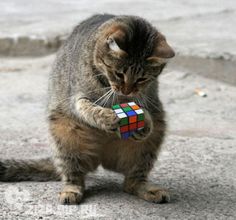
Being a top competitor requires you to develop a team (we consider your horse a part of your team, and this goes for him, too!) The more time, effort and investment you put into the relationship the stronger team you will have. We highly recommend you have a designated coach, caller, organizational person, and horse handler on your Finals team. One person can fill more than one role, but cover all of your bases. Communicate with your team, take time to plan ahead with them, help them understand when and where you will need their help, and include them in the progress and successes you have as you prepare for the show.
Remember, excellence is attainable; perfection is not. When people mess up, give them grace. The same goes for your horse. Focus on all the times your team and your horse came through for you, not on the one time that they didn’t. When your team feels valued you will receive the best from them.
Emotionally tough people have the ability to absorb the unexpected and remain supple and non-defensive. They maintain humor even when the situation becomes tough. If something isn’t going well or doesn’t turn out as expected, they remain flexible in their approach. Emotionally tough competitors look for new ways to think about problems and, more important, look for fresh ways out of these problems.
Tips for competitors from Marcia Moore Harrison:
As I have noted, I have a team that fills in where I have weaknesses and we all have our roles and a plan for execution. But one of the most important characteristics I’m looking for in a team member is their ability to handle it when things aren’t going so well. My friend, Davalee, is a master at this role. She takes the saying, “Don’t sweat the small stuff and its all small stuff.” to another level. The girl doesn’t get rattled. Obviously, any unnecessary drama is detrimental for the competitor and for the horse. In the fast pace of competition, there is no time to wallow in a problem and become too emotional during adversity. We need to immediately go to the logical side of our brains and find solutions to the problem.
Competition brings with it a lot of uncertainty. Uncertainty is breeding grounds for stress. Having well established roles and routines and people who are dependable to follow through and carry out their roles goes a long way in helping calm the competitor. It really frees the competitor’s brain up for the job at hand. For MM Training, we don’t just plan our roles and routines for the show but also for traveling to the show and for our down time away from the show. It’s important to plan everything we have control over but it’s equally important to adjust when things aren’t going as planned.
Application:
Have you and your team established roles and routines?
Have you communicated your schedule from the time you leave to the time you return home?
Have you and your team thought about how you want to handle adversity and initiate problem solving?
Managing impulses and feelings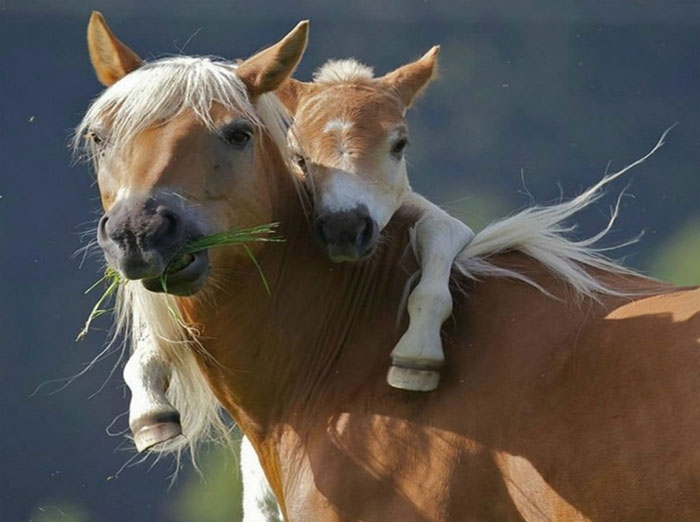
We are all subject to impulses and extreme feelings, especially under the stress of competition. In order to reach and maintain peak performance it’s important to manage these feelings and not just ride the roller coast of up-and-down emotions. The first step to managing feelings is to recognize and acknowledge them. When we are tense in our body, our heart is racing, and our breathing is fast, are we mad? Or are we anxious? Or are we feeling something else? When we are given stressful stimuli, such as the prospect of competing, our bodies can react by going into flight or fight mode. In this mode, our body reacts to the stimuli by pushing all of the blood into our extremities, such as our arms and legs. It is preparing us to run, or punch, or protect ourselves in some way. This diverts blood from our brain. That means when we most need it, our brain is not thinking as clearly as we would like. There are techniques that help us manage our flight or fight response, such as relaxation and deep breathing. Some people like to meditate in silence, some enjoy mental imagery, and some like to have music playing. There are also people who relax best with other people. Help your team to understand the best ways for you to manage your emotions, so they can support you.
Tips for competitors from Marcia Moore Harrison:
Let’s face it; competition is stressful. It’s a good stress and we can thrive on it and love it! Winners find a way to manage unnecessary, negative stress. When we know ourselves and can predict what might become stressful for us then we can proactively put provisions in place to help us avoid that over-stress.
Equally important is being aware of the split second when our body or mind is becoming over-stressed. If we are aware, we can immediately begin a planned strategy for getting us through the stress. What’s critical is not ignoring it! I am a work in progress on this topic. I am a former Marine, raised by a Marine. Basically the theory in our family is, suck it up and get through it. And this theory serves me well in many areas of life. But in competition, it can also take its toll. I can become less focused, spacey and not as able to be there for my horse. I have my strategy; I just have to practice self-awareness.
Application:
Can you predict certain areas that will bring you negative stress?
Do you have provisions in place so you can avoid these over-stressors?
Have you practiced self-awareness to the point of knowing the split second you become over-stressed?
Do you have an action plan for de-stressing during these moments?
Physical resilience
Our physical health has a direct effect on our emotional and mental resilience. Taking care of us physically is the prerequisite to peak performance. Here are a few tips:
1. Flush out stress hormones with physical activity. There is a direct connection between training the heart rate to drop and recover after the stress of exercise and getting it to drop and recover after the stress of everyday life. Training the body to recover from any type of stress (physical, mental, or emotional) improves resiliency.
2. Neuroimaging and neurochemistry studies suggest that a good night’s sleep helps foster both mental and emotional resilience, while chronic sleep disruptions set the stage for negative thinking and emotional vulnerability. Adults should get 7-9 hours of sleep every night.
3. Plan your snacks and meals in advance. When you skip meals or go too long without eating, glucose levels get too low, and the stress response is stimulated. Eating every three hours helps you avoid overeating at meals. Make sure you and your horse have plenty of water at all times. Good hydration not only provides the body with enough fluids to function but also prevents subsequent injuries and illnesses.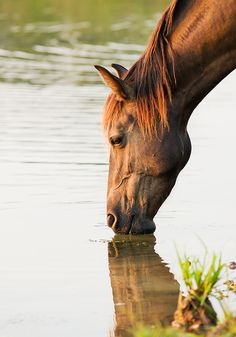
4. Meditation, imagery (as discussed in our first blog), deep breathing exercises, and progressive muscle relaxation (alternately tensing and releasing muscles) can counter anxiety and racing thoughts. Use your breathing to teach your horse to relax, too. When you take a deep breath and release it, your horse feels your release of tension and often will take a breath also. When you are under the stress of reaching peak performance, breathing will give you both a mini-recovery time.
5. When working at home, practice physically harder and for a longer stretch of time than you will need to perform. This will make the actual competition seem easy by comparison. John Maxwell, who speaks and writes about leadership, says, “If you want to see where someone develops into a champion, look at his or her daily routine. Champions don’t become champions in the ring, they are merely recognized there.”
6. Routines and rituals help you relax, focus and prepare mentally and physically for an upcoming event. When developing a warm-up routine for your horse at home, make sure that it is one that can be used during a competition as well. There is comfort for both you and your horse in the familiar repetition of a routine. This becomes particularly important during the stress of change you experience while away from home. Create your own customized way of preparing to be your best.
Tips for competitors from Marcia Moore Harrison:
Good nutrition is a must! We are athletes so we must treat ourselves as such. As James Loehr says, “Without enough food, water, and sleep, we all become wimps and lose.” I found out the hard way about adequate hydration during competition. Talk about feeling spacey and an out of body experience! Yes, I became a wimp and made a big error in a major competition!
My team and I eat mostly paleo (no grains, no sugar, etc) and we strive to keep our diet the same while we are on the road. We try to eat three healthy meals a day and we always have healthy snacks and water in our tack room for easy access.
My mom, Betty, even at 80 years old, is a very high-energy person. Her body language is busy and can give her horse confusing messages. Mom is aware of this and has eating strategies. For instance, she knows she does not need coffee before competition. In fact, she will take it to another level and eat turkey to help calm her.
Application:
Have you planned your meals, snacks, and drinks for the road?
Do you have a healthy eating plan for high-stress times during the competition?
Have you planned your sleeping arrangements and have an agreement about when lights go out?
These are just a few of the things we do to help us reach our peak performance. We would love to hear from all of you. We know you are great competitors and we want to hear tips and tricks that work for you!
We hope some of the information shared in this blog series is helpful as you continue to develop the mental, emotional and physical aspects of competing in Cowboy Dressage. The culture of Cowboy Dressage is kind, warm, helpful and uplifting and is the perfect environment to fine-tune your skills and reach peak performance. We look forward to seeing all of our friends at the 2015 Gathering and Finals!





Reader Comments